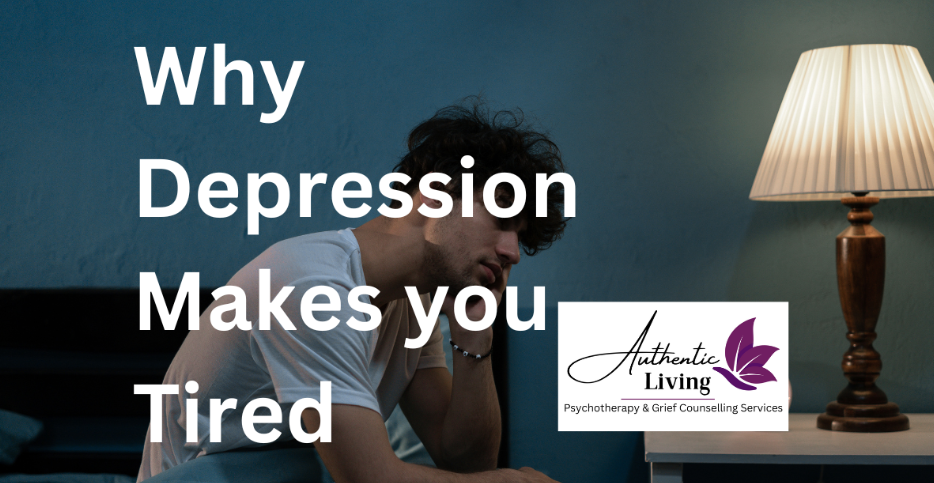Why Grief Makes You Tired
- Aug 18, 2025
- 3 min read
Grief is more than sadness—it’s an all-encompassing experience that touches the mind, body, and spirit. Many people are surprised to find that alongside the emotional pain, grief also brings profound fatigue. This exhaustion is not a sign of weakness; it is a natural response to loss. Understanding why grief makes you tired can help normalize the experience and guide you toward caring for yourself in compassionate ways.

Why Does Grief Make You Tired???
To make help it all make sense, I'm going to break it into categories:
Neurological Factors
Grief activates the brain’s stress response. When someone experiences loss, the amygdala—the part of the brain that processes threat and danger—becomes highly active. This sends signals throughout the nervous system, releasing stress hormones like cortisol and adrenaline. While these chemicals are designed to keep us alert, prolonged release actually wears down the body. Meanwhile, grief interrupts normal sleep cycles by disrupting the brain’s regulation of melatonin and serotonin, leaving people restless at night and exhausted during the day.
Psychological Factors
The mind works overtime during grief. Thoughts loop endlessly—memories replay, questions of “why” surface, and worries about the future consume attention. This mental overactivity is draining in the same way that constantly running a computer program slows down a machine. The brain’s focus on loss leaves less energy for concentration, problem-solving, or even basic daily tasks, which translates into persistent tiredness.
Physiological Factors
The body carries grief. Many people experience physical symptoms such as muscle tension, headaches, stomach upset, or a heavy feeling in the chest. This is partly due to stress hormones but also because grief can weaken the immune system, leaving the body working harder just to maintain balance. On top of that, disrupted appetite and changes in activity level—whether withdrawing from movement or pushing oneself too hard—further strain the body and add to fatigue.
Social Factors
Grief is also socially exhausting. Relationships often shift after a loss. Some friends and family show deep support, while others may distance themselves or say unhelpful things. Navigating these changes requires emotional labor, which drains energy. Additionally, grieving people sometimes feel pressure to “perform” socially, holding themselves together in public or at work, which can be exhausting when the private self feels broken.
Spiritual Factors
For many, loss shakes the foundations of meaning and belief. Questions about mortality, purpose, and the nature of existence can arise in grief. Wrestling with these deep spiritual questions—whether within a faith framework or not—takes enormous emotional and mental energy. Spiritual fatigue can feel like disconnection, emptiness, or a sense of being unmoored in the world, all of which contribute to overall tiredness.
What to Do About Grief-Related Fatigue
While tiredness is a natural part of grief, there are ways to support your body and mind through it:
Rest without guilt. Your body is doing the hard work of grieving. Allow yourself naps or early bedtimes without judgment.
Move gently. Light exercise, such as walking or stretching, helps release stress hormones and restore energy balance.
Nourish your body. Eating small, balanced meals keeps your body fueled and supports your immune system.
Set gentle boundaries. Limit overwhelming social demands and surround yourself with people who understand your grief.
Seek meaning. Journaling, spiritual practices, or talking with a trusted person can help you process the deeper questions grief brings.
Get professional support. A therapist can help you understand your grief responses and develop personalized strategies for coping with fatigue.
Remember, grief-related tiredness does not mean you are weak or failing. It is your body and mind’s way of adapting to profound change.
Support at Authentic Living London
At Authentic Living London, we understand how exhausting grief can be. Our therapists provide a safe, compassionate space to explore your emotions and offer practical tools for coping with the mental, physical, and emotional fatigue that loss brings. Whether through one-on-one sessions or couples therapy, in person or online, we meet you where you are. Our approach honors your unique experience of grief while helping you find moments of rest, resilience, and connection.
If you are struggling with grief and fatigue, you don’t have to do it alone.
and let us support you on your journey toward healing.












Comments